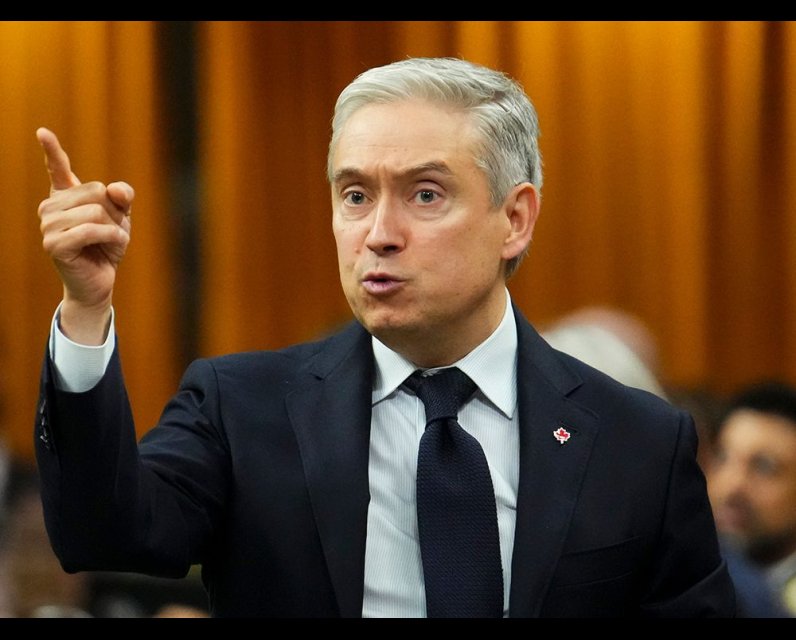Canada confirms work underway on review of tariffs on Chinese EVs, steel and aluminum

OTTAWA — Work is underway for an upcoming review on whether the tariffs Canada applied to China’s electric vehicles, steel and aluminum should remain at the current rates, the federal finance minister’s office has confirmed.
A spokeswoman for François Philippe-Champagne says imports of these Chinese products “have declined significantly since their imposition,” adding that the government had committed to review these surtaxes one year after they were implemented last October.
“Officials are currently undertaking work on this review, including an assessment of China’s policies and trade practices, and whether the scope of the surtaxes, as well as the surtax rate, remain appropriate,” Audrey Milette said in a statement to National Post, late Thursday.
“The government will continue to provide updates as relevant.”
The statement comes the same day that the Prime Minister’s Office announced it was sending a representative on an upcoming trade mission to China and lands amid pressure from Western premiers to drop its tariff on Chinese-made electric vehicles in an effort to see China lift its tariff on canola .
In August 2024, former finance minister and deputy prime minister Chrystia Freeland announced measures that the government characterized as designed to “level the playing field” for Canadian workers in both the steel and aluminum industries and the auto sector.
Starting that October, it implemented a 25 per cent surtax on Chinese steel and aluminum as well as a 100 per cent surtax on Chinese-made electric vehicles.
The Liberal government said the measures were in response to unfair competition and labour practices from China, particularly when it came to electric vehicles, given that China is the world’s largest exporter.
Officials heard that Canada’s importation of Chinese electric vehicles, which are the cheapest to buy, posed a threat to the future development of the North American market in the sector.
Its decision to levy a 100 per cent tariff on Chinese electric vehicles followed suit with an earlier move by former U.S. president Joe Biden, whose administration hiked its own tariffs on these vehicles to 100 per cent.
U.S. officials had also cited potential national security concerns related to how these vehicles were internet-connected.
Earlier on Thursday, the Prime Minister’s Office announced that Kody Blois, Carney’s parliamentary secretary, would be traveling to China as part of a trade delegation led by Saskatchewan Premier Scott Moe to address numerous “trade irritants,” including tariffs on Canadian canola.
China’s decision to levy a 76 per cent tariff on canola seed has been viewed as coming in direct response to Canada’s levy on Chinese electric vehicles.
Both Moe and Alberta Premier Danielle Smith have been calling on the federal government to remove its tariff on Chinese electric vehicles in an effort to see the dispute resolved.
The Prime Minister’s Office, in the statement announcing Blois’s travel, said it was taking steps to protect the jobs tied to Canada’s canola industry and would be announcing “additional measures in support of Canadian producers shortly.”
Sources say Carney is expected to make a wide-spanning, national-level economic announcement on Friday in Toronto, where Carney has spent the past two days meeting with his cabinet before the House of Commons resumes on Sept.15.
On Thursday, Industry Minister Mélanie Joly said there would be an announcement “in the coming days” to support Canadian industries hit by U.S. President Donald Trump’s tariffs.
Speaking to reporters on Wednesday, Carney said there was room for trade to grow between China and Canada, namely in agriculture.
“We have differences with China, different approaches to a variety of things, but they are our second largest trading partner,” he said.
“Look at the issues around canola at present and our broader agricultural export: pea protein, other aspects and fisheries. We’re going to work hard to get that right,” he added.
“Within that context, there may be areas where… we can expand the commercial relationship with things that China does well.”
Our website is the place for the latest breaking news, exclusive scoops, longreads and provocative commentary. Please bookmark nationalpost.com and sign up for our politics newsletter, First Reading, here.

Comments
Be the first to comment